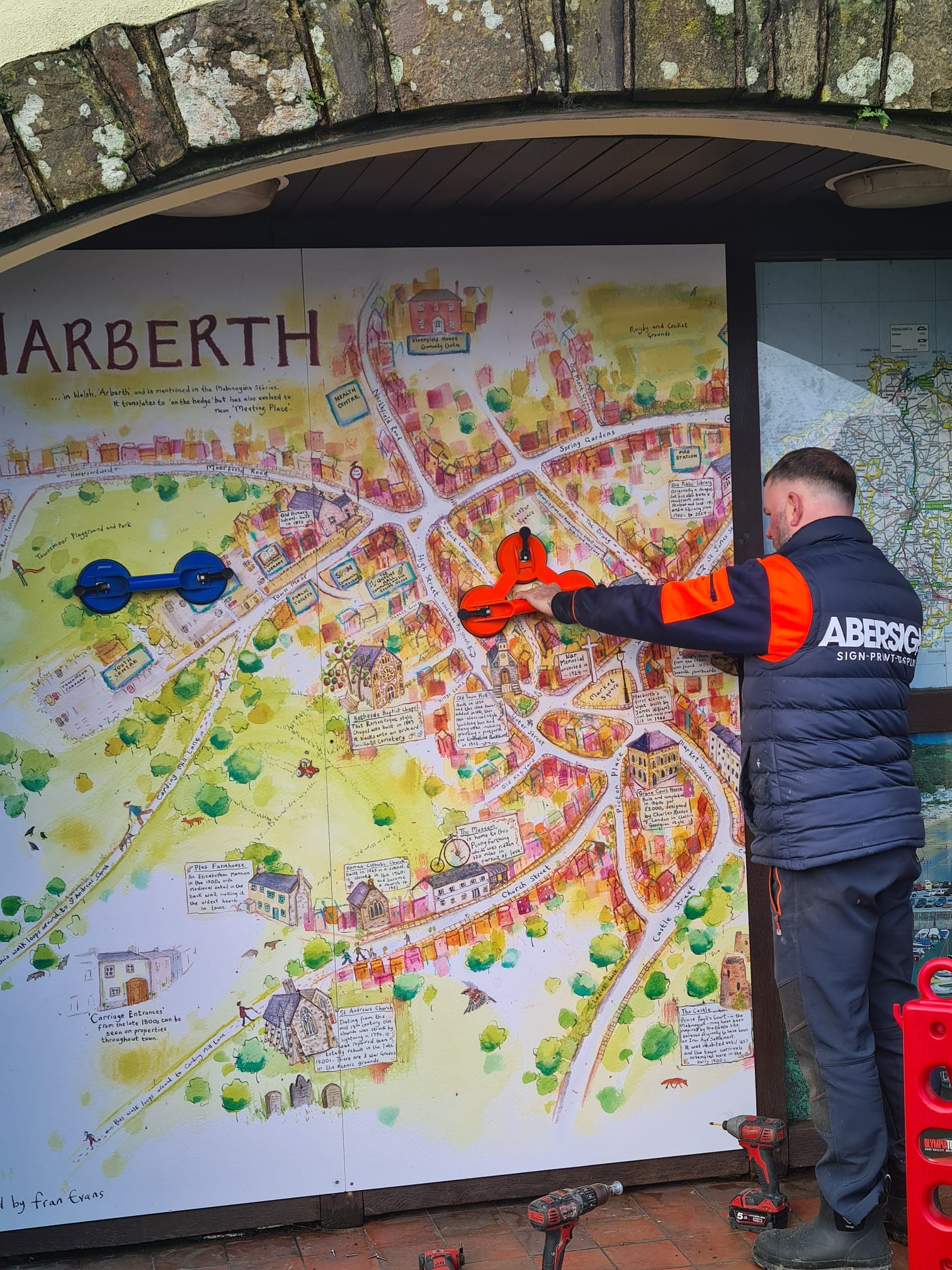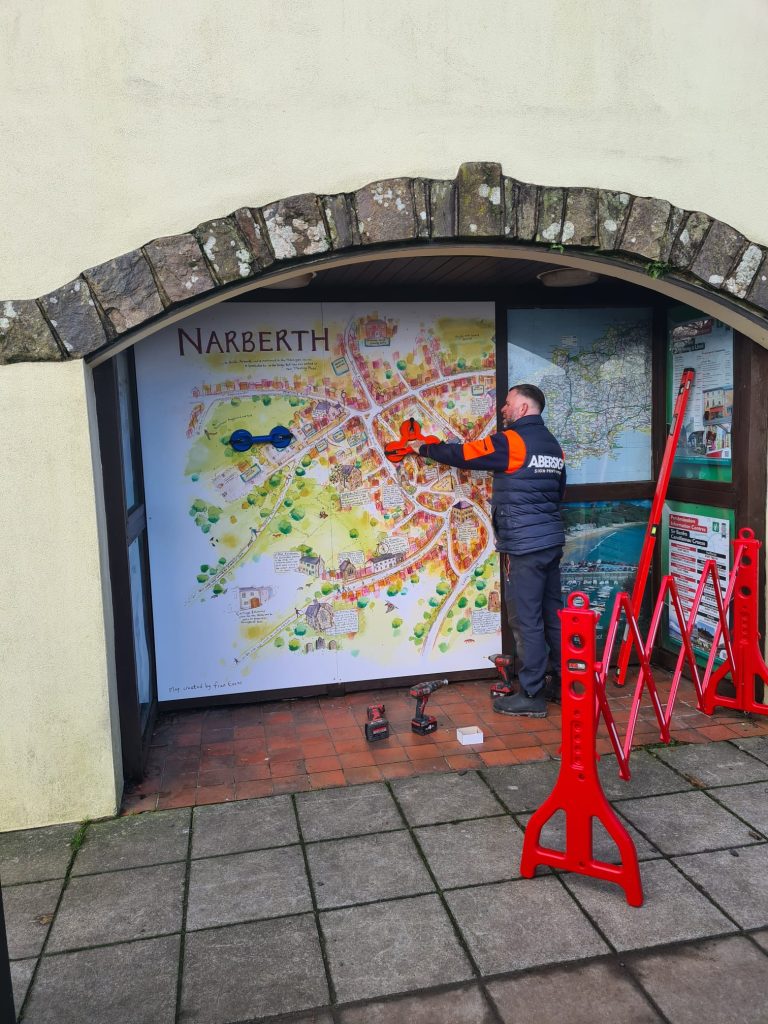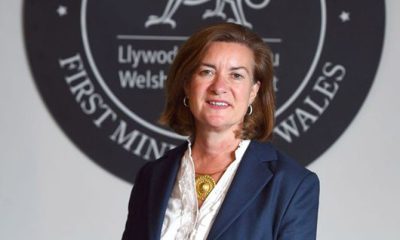News
Competing with Netflix: Welsh language TV to be protected with more digital content

NEW measures will enshrine importance of regional and minority language in UK broadcasting law, The UK Government has said. A package of support for Welsh broadcaster S4C to produce digital content has been announced.
The plan is to expand S4C’s digital and online services and to remove current geographical broadcasting restrictions amid a shake-up on broadcasting rules. On Thursday, the Secretary of State for Digital, Culture, Media and Sport, Nadine Dorries, revealed as part of a white paper, such changes would help the Welsh language broadcaster broaden its reach and offer content on a wide range of platforms.
This comes after the UK Government announced that S4C had secured an improved funding deal in January, which will include an additional £7.5m each year through the BBC license fee to support its digital offering. According to the UK Government, changes to broadcasting rules “will enable S4C to continue to support the Welsh economy, culture and society, reach more Welsh language speakers including younger audiences, and the UK government’s commitment to support the ambition of 1 million Welsh speakers by 2050.”

Decades-old broadcasting regulations will be updated to give the UK’s vital public service system a deal fit for the streaming age and make sure the importance of programmes broadcast in the UK’s regional and minority languages is recognised in the public service broadcaster (PSB) remit for the first time.
The broadcasting white paper published this week also includes plans for regional and minority language content published on digital platforms to be captured in S4C, STV and other broadcasters’ public service remit.
Geographical broadcasting restrictions will be removed from the Welsh language broadcaster S4C so people can enjoy Welsh content no matter where they are in the UK – supporting the Welsh economy, culture and society, and the UK government’s ambition to see one million Welsh speakers by 2050.
Moves to boost the prominence of programming by channels such as BBC, S4C and STV will support Welsh and Gaelic language broadcasting in Wales and Scotland by ensuring they are available and easy to find on smart TVs, streaming sticks and set-top boxes. These are part of plans to give PSBs greater flexibility in how they meet their obligations and strengthen their ability to target younger audiences amid a rapidly changing media landscape.
UK Media Minister Julia Lopez said: “Broadcasting in regional and minority languages provides a crucial opportunity for speakers to enjoy a range of quality shows in a language familiar to them, and a means of cultural expression for communities across the UK.
“We will – for the first time – make the importance of programmes broadcast in the UK’s regional and minority languages clear in law by including it in our new public service remit for television.”
Following the publication of the paper, Nadine Dorries took to social media to explain the changes further. She tweeted: “Noswaith dda… Newyddion da i S4C… The Broadcasting white paper published today expands your remit, secures your prominence and recognises your unique and critical role in British culture. Pob lwc!”
Secretary of State for Wales Simon Hart said: “Hundreds of thousands of people access Welsh-language content every week and our plans will provide greater support to broadcasters like S4C and make it easier for audiences to find content in the language of their choice.
“Welsh-language broadcasting and production plays a crucial part in the creative industries and the UK Government will continue to support the sector as we work towards our ambition to see one million Welsh speakers by 2050.
“Today’s announcement follows our commitment of £7.5m a year for S4C’s digital development, ensuring the widest possible range of platforms”
The Welsh Conservatives have also welcomed the news. The Shadow Minister for Culture, Tourism and Sport, Tom Giffard MS, said the changes “will help broadcasters – including S4C – compete with some of the big streaming giants like Netflix and Amazon Prime”.
The government will continue to support long-term commitments to support cross-border broadcasting on the island of Ireland including funding for the Northern Ireland digital terrestrial television multiplex that has carried RTÉ and TG4 services to Northern Ireland since 2012. It will also consider the scope to ensure the prominence of regional and minority language services.
The government’s Broadcasting White Paper sets out a huge range of measures to protect British content by giving public service broadcasters a more flexible remit for the programmes they produce and show.
This includes plans to better give viewers of video-on-demand services the same protections from harmful content as TV viewers by establishing a new Ofcom code and regulatory powers on content standards.
The government will pursue a change of ownership of Channel 4 to give it the tools it needs to succeed in the future as a public service broadcaster while protecting its distinctiveness.
Community
New illustrated heritage map unveiled in Narberth town centre

A NEW illustrated heritage and wayfinding map has been installed in Narberth town centre, highlighting the town’s rich architectural history, cultural heritage and key landmarks.
The hand-drawn map has been created by local artist Fran Evans and is part of a wider project aimed at improving interpretation and the visitor experience in Narberth.
The panels have been installed at two prominent locations: the undercroft, also known as Rebecca’s Cell, at the rear of the Old Town Hall, and the existing external display frame at the side of No.47, adjacent to the town’s museum.
Developed and delivered by Narberth Town Council, the project has been funded through the UK Government’s Shared Prosperity Fund, with additional match funding provided by the Town Council.

The illustrated map features detailed drawings of historic buildings, local stories and notable points of interest. It is designed to function both as a practical guide for residents and visitors navigating the town, and as a visual celebration of Narberth’s heritage.
Town councillors say the project forms part of a broader effort to enhance how the town’s history is presented in public spaces, making it more accessible and engaging for those visiting the area.
The Town Council has indicated that further information about the project, including background details and images of the newly installed panels, can be made available, along with comments from the artist and council representatives.
international news
Welsh Government criticised over lack of clear international strategy

Senedd committee says £58m spending cannot be properly scrutinised and calls for major overhaul
A SENEDD committee has raised serious concerns about the Welsh Government’s approach to international relations, warning that a lack of clear strategy and financial transparency is undermining Wales’s work on the global stage.
In a report published on Tuesday (Jan 28), the Culture, Communications, Welsh Language, Sport and International Relations Committee said confusion, fragmented planning and weak accountability have made it difficult to assess priorities, impact or value for money.
While the Committee acknowledged that Wales benefits from international goodwill, expertise and global connections, it said the absence of a coherent long-term strategy meant those strengths were not being used effectively.
The Committee has now set out a new framework, called Mission Cymru, which it says should guide future Welsh Governments and place international relations on a more stable and transparent footing.
Committee chair Delyth Jewell said the inquiry had uncovered widespread uncertainty about what the Welsh Government is trying to achieve internationally and how success is measured.
She said evidence presented to the Committee repeatedly highlighted confusion over government priorities and a lack of clarity around outcomes.
“As we enter a period of growing global instability, the need for clear and measurable principles for Wales’s international engagement has never been greater,” she said.
“Geography may place Wales at the edge of a continent, but our voice should never be marginal.”
£58m spend ‘cannot be scrutinised’
One of the most serious criticisms in the report relates to financial transparency.
The Committee said it has been unable to scrutinise more than £58 million allocated to international relations during the current Senedd term, despite repeated attempts over several years to obtain detailed information.
It said gaps in reporting, late updates and incomplete data have made it impossible to assess whether the funding has delivered tangible benefits for Wales or represented value for money.
As a result, the Committee said it remains unclear whether significant public investment in international activity has aligned with government priorities or achieved its intended outcomes.
Poor oversight and accountability
The report also criticises the Welsh Government for what it describes as weak ministerial accountability.
Although international relations sit within the First Minister’s portfolio, the Committee noted that the First Minister appears before it only once a year and has declined to attend other scrutiny sessions, including those examining budget matters.
The Committee also highlighted failures to keep the Senedd properly informed about key developments, including the signing or renewal of international agreements, and said records of Wales’s international arrangements remain incomplete.
It warned that poor transparency not only limits democratic scrutiny but risks undermining confidence in Wales’s international work.
Call for ‘Mission Cymru’
Looking ahead, the Committee is urging future Welsh Governments to adopt Mission Cymru—a set of twelve principles designed to provide a clear, long-term vision for Wales’s international relations.
The Committee said the framework would help bring greater focus, coherence and accountability to international activity, ensuring Wales’s global engagement delivers measurable benefits at home.
The full report, Mission Cymru: Principles for international relations, has been published by the Senedd.
Business
Optical roles show weekend jobs still thrive for young people in Pembrokeshire

AN OPTICIANS in Haverfordwest is proving that the traditional Saturday job is far from dead, offering young people practical experience, transferable skills and a genuine pathway into long-term careers.
With figures suggesting almost one in eight people aged 16–24 are not in education, employment or training, the decline of weekend work has increasingly been cited as a barrier to young people becoming workplace-ready. But the locally owned and run Specsavers Haverfordwest is bucking that trend by actively recruiting and supporting young staff.
The store currently employs Kyle Ashbourne, 16, who has worked weekends as a trainee optical assistant since November while studying at college. The role provides hands-on experience in customer service and retail, alongside an introduction to the technology and processes involved in eye examinations and the wider optical profession.
Speaking about his experience, Mr Ashbourne said: “Working at Specsavers alongside my studies has been a great experience. I’ve developed my confidence and communication skills and learnt a lot about customer care and the optical industry. The flexibility of weekend work really helps me balance my job with college, and I feel supported to develop my skills for the future.”
Weekend roles at the store typically involve welcoming customers, supporting appointments and learning how the practice operates day to day. For many young people, it is their first experience of the workplace, helping them build confidence and develop skills that extend well beyond retail.
Specsavers Haverfordwest store director Andy Britton said weekend positions can play a crucial role in opening doors. He said: “A Saturday role is an ideal way for young people to gain early insight into the profession while picking up valuable, real-world experience in a supportive environment.
“It’s not just about earning money. It’s about building confidence, learning how to work as part of a team and developing strong communication and customer service skills that will serve them well throughout their lives. Many of our colleagues started in weekend roles and have gone on to enjoy long and rewarding careers with us, which we’re proud to support.”
Specsavers offers a range of career routes, from retail and customer service to clinical roles in optics, with ongoing training and development opportunities designed to help staff progress.
For more information, or to book an eye examination or hearing check, call Specsavers Haverfordwest on 01437 767788 or visit the store’s website.
-

 Community6 days ago
Community6 days agoCPRW welcomes long-awaited grid report and calls for more transparency
-

 Health6 days ago
Health6 days agoHywel Dda board to consider refreshed health strategy to 2040
-

 Health4 days ago
Health4 days agoHealth Board to decide on future model for nine clinical services
-

 Crime6 days ago
Crime6 days agoHaven Master spared jail after River Cleddau kayak crash
-

 News6 days ago
News6 days agoMilford Haven School placed in special measures after Estyn inspection
-

 Health6 days ago
Health6 days agoWithybush staff fear crèche fee rise will price parents out
-

 Local Government7 days ago
Local Government7 days agoQuestions raised over horse riding licence fees ahead of scrutiny meeting
-

 Business5 days ago
Business5 days agoNew planning rules could block Welsh pubs from running pop up campsites






































